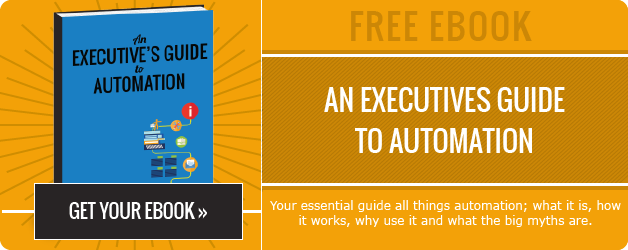The "last mile" is a term used in the telecommunications industry to describe the technology used to provide the last mile of connectivity between the service provider and the customer.
Similarly, the "last mile of finance" is an analogous phrase, made popular by Gartner, to describe the business processes followed by the finance department in a business, to produce financial reports when closing-off a financial period (usually monthly, quarterly or at financial year-end).
Much like the complicated last mile of telephony, the last mile of finance is also paved with many complex financial processes for routine accounting functions. In today’s fast-moving and competitive marketplace, it makes no sense to waste time and resources on these recurring tasks that could easily be automated. So let’s take a look at five signs that suggest that your financial processes are too complex and should be simplified.
1. Are your staff spending hours each day shuffling between spreadsheets?
Spreadsheets have their place in most businesses, but when it comes to managing and processing large amounts of data, larger, more robust systems may be required. Many companies make the mistake of sticking to a small business mentality when experiencing growth, which can hamper the business from growing organically alongside its market. As your business expands, so should your investment in technology. This is not to say that you shouldn’t be using spreadsheets when looking at reports, but it means that those spreadsheets should be simpler with all of the data processing being done by your integrated business automation software. The servicing of large customer volumes and managing large quantities of billing information becomes much easier when using integrated billing systems that automate various manual functions and eliminate frequent human error.
2. Is your CFO making uninformed decisions because of delayed data?
The modern CFO is an integral player in determining the medium to long-term objectives of an organisation. With rising expectations and demands on CFOs, archaic and time-consuming financial processes often get in the way of delivering the right information at the most opportune time. In order to make calculated business decisions, CFOs need up-to-date and reliable financial information available at their fingertips. By using process automation platforms, individual snapshots or linear time views of your business data can be taken - this can reveal a lot about the performance of your new products, operations and other metrics. This can be used to fine-tune operations or reduce excessive expenditure. CFOs that have the right tools to view and analyse financial information on-demand can make more informed decisions and as a result provide a more impactful contribution.
3. Is your financial accounting system operating as an island?
Financial systems that function independently from other business-critical systems may only ever give finance staff half the picture. Customer data, operations, activations and other key metrics need to be sourced, imported and converged with financial metrics. This can take a lot of time to accomplish, sometimes causing delays in achieving pedestrian tasks. In addition, data sourced from multiple software systems may cause compatibility challenges and add an additional layer of complexity to your financial processes. Moving beyond the finance team, automation and software integration benefits the entire business by collating and repurposing company data through a single interface to bring the business - from operations to finance to administration - into sharper focus.
4. Are your reporting tools leaving you less informed?
As companies grow, so should their systems and processes. Rapid growth, however good for business, can cause havoc on internal systems if those systems are not capable of managing an influx of new data. This can lead to complex and counterintuitive financial reporting methodologies that serve up less than the full picture. Automation, thanks to integrated software platforms, is able to bridge the gap between disparate systems to deliver end-to-end reporting functions that not only provide financial snapshots, but detailed historic and financial forecasting metrics and add a new dimension of detail and clarity to the reporting process, leaving you more informed.
5. Is revenue leaking through your billing and collections processes?
Billing and collections are two business processes that are most prone to revenue leakage if not managed carefully. When billing cycles are put through their processes, the business needs to know that despatched invoices contain customer information that is accurate and up-to-date. This is more easily achieved when your billing and collections processes are automated and integrated into a single system. Manual invoice generation can take finance teams days to complete and is often erroneous and could lead to revenue leakage. This problem is only exacerbated when your customer billing itself is not automated because your service platforms and financial systems are not integrated. Even your complicated collections’ processes can be automated and simplified so that you can focus on the output of these processes instead of losing time and revenue by focusing all your efforts on the processes themselves.
Business automation can inject new life into complex financial processes
Accuracy and transparency are two cornerstones of efficient and reliable financial systems. For time-starved accounting staff, ensuring that complex financial processes function efficiently and profitably is a crucial, yet draining exercise in the absence of automation software. In addition, regulatory financial compliance adds yet another layer of complexity to financial processes and accounting. With automation, fewer issues slip through the cracks thanks to built-in safeguards that ensure compliance and accuracy.
Business process automation can help financial teams and their executives achieve higher levels of efficiency by eliminating traditional siloes that serve to muddy the water. With finance departments so heavily reliant on other business touchpoints, integration of key business systems can reveal countless opportunities for simplifying complex financial processes. Download your free Executive’s Guide to Automation to learn more about how SOLIDitech can help your business simplify your complex processes through automation.







Comment